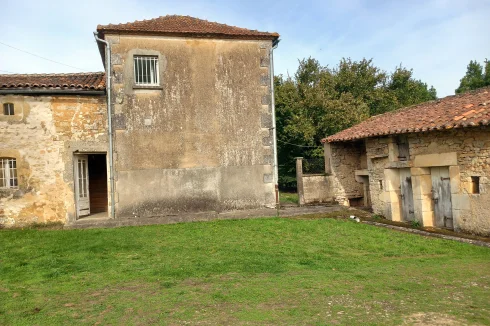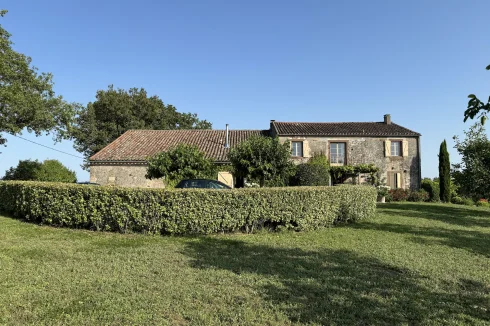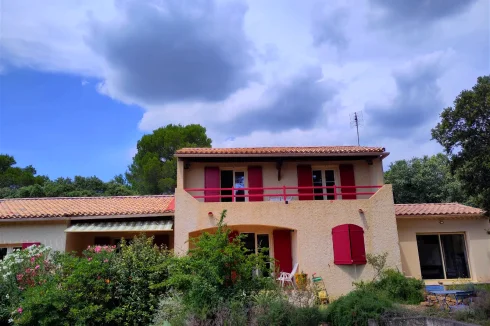French Holiday Apartments Get Rescue Package
Tuesday 02 February 2010
With a number of ski and other holiday residential developments in financial difficulty the French government has been forced to come up with a bail out package for investors.
Holiday residential developments, known as résidences de tourisme have spawned over the last twenty years, with several hundred thousand bed-spaces having been created since the mid 1980s.
There are around 1500 such developments in France, containing 120,000 apartments, and 500,000 bed-spaces.
The majority are located in seaside locations, with a third of the developments in skiing resorts, 17% in cities, and 8% in the countryside.
The developments are really a hybrid between a hotel and a furnished apartment – effectively serviced apartments for holiday use.
The market leader in these developments is Pierre et Vacances, with around one third of all bed-spaces.
A great deal of the attraction of these developments has been down to the tax incentives that have been available to investors. These incentives are known as ‘Périssol’, ‘Besson', 'Censi-Bouvard' and 'Demessine’, after the Ministers who introduced the schemes.
An investor is able to reclaim VAT on the purchase price of such a property, and in rural development areas they also obtain a generous 25% reduction (now capped at €25,000) in their income tax bill over six years.
Thus, on the purchase of a flat priced at €143,500 a total saving of nearly €50,000 has been possible: €23 520 VAT + €25 000 income tax = €48 520!
When these tax breaks are coupled with a guaranteed rent and transfer of management responsibility to an operator, it has seemed an irresistible offer.
As a result, many investors have done very well out of these schemes, which have been one of the premium investment products in France.
The problem has been that the tax advantages seem to have rather clouded the judgement of some investors, with many commentators now judging that some of the growth of these developments has been artificial, driven by tax considerations, not those of the market.
Around 70 Complexes Concerned
According to the Syndicat National des Résidences de Tourisme (SNRT) around 70 complexes are in financial difficulties.
Operators such as Quiétude, Residhôtel, Atrium Tourisme, Transmontagne, Mona Lisa, LVR and Maisons de Biarritz have actually gone to the wall and others have been in difficulty.
Most of the failures have been the result of unsuccessful complexes based in rural development areas (including some low lying ski resorts), where the tax breaks for investors have been greatest, but where the commercial prospects for the development are more speculative.
Reports are widespread of operators threatening to terminate the lease they hold on the complex unless investors agreed to a reduction in the guaranteed rents payable to them, or even to withholding rental payments.
Where they have actually gone into liquidation, or failed to renew their lease, the complex has been left with no operator, and investors have been left with no guests and a decaying holiday complex.
The investors also faced not only losing their guaranteed rent, but also their reduction in income tax, which is conditional on an operator being in place. Where the complex is without an operator for at least twelve months, then the investors are obliged to repay the tax reduction they have received.
In a large number of cases, the complex has subsequently been purchased by a new operator, but they have often insisted on renegotiation of the rental guarantee as part of the terms of taking on the business.
New Regulations
Faced with this situation, a handful of French MPs introduced amendments into the finance bill that recently passed through the French Parliament introducing greater flexibility in the contractual arrangements. There are three main changes.
First, as the reduction in income tax is conditional upon the complex not being without an operator for more than a year, investors in those complexes where this condition has not been met have been faced with having to reimburse, in a single year, the tax reduction they previously received. The new rules increase from one year to three years, the period over which the tax credit can be repaid. So the tax break is still lost, but investors have longer to repay it.
Secondly, as this still seems only partial solution, the new rules make it easier to bring in a new operator for the complex. Instead of being required to find new specialist operator with whom to sign a fixed term commercial lease, investors are now permitted to create their own management company, if necessary in collaboration with local property management agents. Provided the new managements arrangements cover at least 50% of the flats, and are in place within a year, this will not prejudice the reduction in income tax.
Finally, where the operator offers a mixed rental return to investors, based on a fixed rental and a variable rental return (normally related to the turnover of the complex), this will now more clearly be without prejudice to the 25% reduction in income tax granted to investors, provided the variable element remains less than 50% ot the total rental. Previously, the use of a mixed rental return risked re-classification of the type of income, which would in turn have meant loss of the tax break.
The issue is continuing to attract a lot of political attention in France, and it is by no means certain that these changes are going to be the last word on the subject.
What is a Résidence de Tourisme?
The creation of a résidence de tourisme relies on somewhat unusual ménage à trois – a developer, a commercial operator and an investor.
A property developer constructs the accommodation, on which most of the properties are pre-sold to individual investors, who then enter into a commercial lease with a specialist operator to run it.
The operator offers a guaranteed fixed rent to each investor of normally around 4% per annum.The operator is then expected to make their own return from sub-letting the rooms and facilities to guests.
Investors are also normally allowed use of a flat/villa in the complex (not necessarily their own) for a specific period each year.
Generally, an association of investors (copropriétaires) will be established who are then able to liaise with the operator and pick up any issues that may be of concern.
The résidences de tourisme need to be distinguished from 'villages de vacances', as the former focus on serviced accommodation, while the latter is a complete holiday complex.
Thank you for showing an interest in our News section.
Our News section is no longer being published although our catalogue of articles remains in place.
If you found our News useful, please have a look at France Insider, our subscription based News service with in-depth analysis, or our authoritative Guides to France.
If you require advice and assistance with the purchase of French property and moving to France, then take a look at the France Insider Property Clinic.





